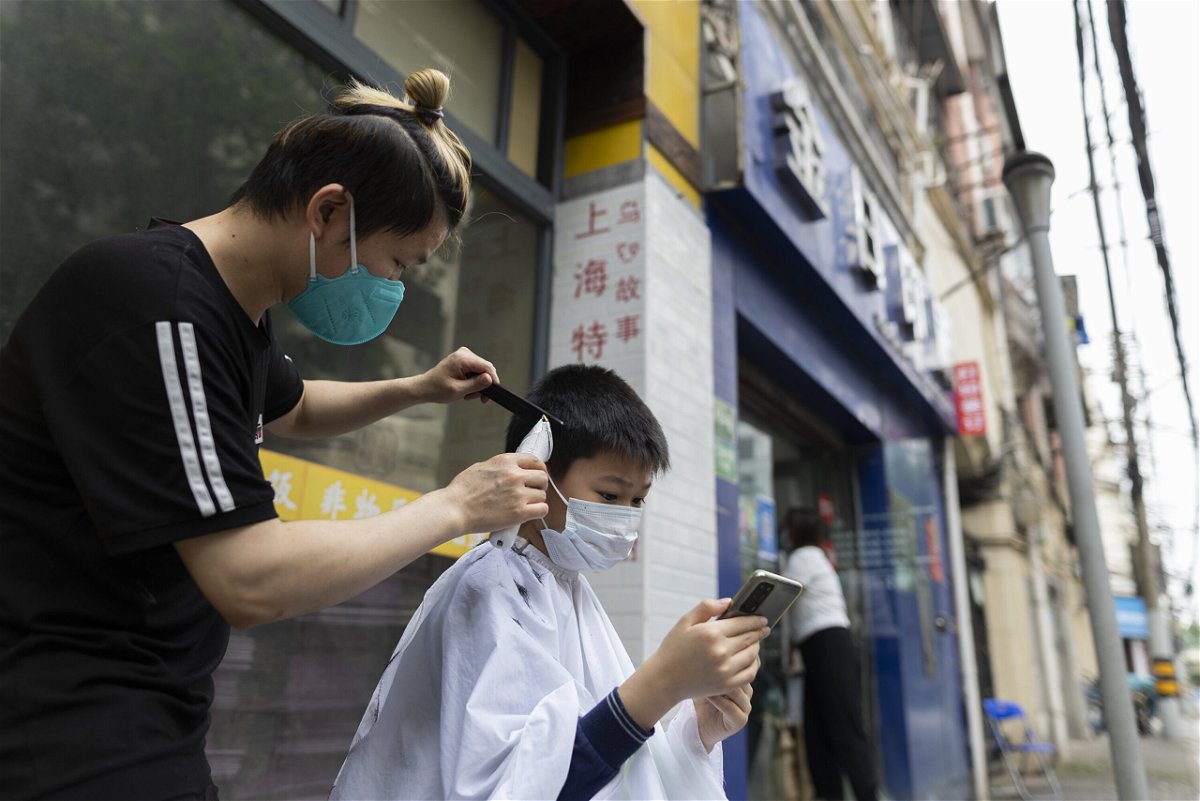Shanghai is finally ‘reopening,’ but the trauma of lockdown lives on

On May 31
By Nectar Gan, CNN
The skyscrapers lit up, roads filled with traffic, and young people drank and danced in the streets as fireworks boomed overhead.
Shanghai celebrated Wednesday with a long-awaited burst of life, as the government lifted its city-wide lockdown. But the process of reopening is likely to be slow and painful, as residents in the financial hub contend with the trauma of the past two months.
For Henry Shi, a 30-year-old photographer who ventured out of his community on Tuesday afternoon, the first thing that struck him was the ambient noise of the city.
“The city has gone really quiet as everyone stayed home. Now, the noises are back, from cars roaring on the streets and people bustling about — it feels as if I’ve woken from a long slumber.”
As midnight approached, the atmosphere in Shanghai was one of joy and relief. Videos posted on social media show cars honking, pedestrians chanting in celebration, and fences — once used to constrain residents to their compounds — pulled down from gates and streets.
As of Wednesday morning, most of the city’s 25 million residents are free to leave their communities, shops and office buildings can reopen, cars are back on the streets, and subway and buses are resuming services.
But to some, there is a lingering sense of bitterness, sadness and anger — having witnessed the suffering and pain inflicted upon the city by the zealous enforcement of the government’s zero-Covid policy.
The chaotic lockdown caused widespread food shortages and delayed medical care for emergency patients. Young children were separated from their parents in quarantine.
Residents, including the elderly, were forced into spartan makeshift isolation facilities and forced to hand over their keys to have their homes disinfected. The draconian measures triggered wave after wave of outcry, severely eroding public trust in the Shanghai government.
“A ridiculous drama is over and no one has come forward to explain, no one has apologized to the lives that were insulted, harmed and lost, and no one has been held accountable,” a Shanghai resident wrote in a widely shared post on WeChat, a Chinese social media platform.
“The takeout is back, the crayfish is back, the beer is back, but the sense of security is gone,” said the post, which was later censored.
The restrictions upended business in virtually every sector and brought the city’s economy to a standstill. Many businesses were forced to suspend production temporarily, others have suggested they may not recover.
While the lockdown has been mostly lifted, some Covid restrictions remain a part of daily life. Most public venues and transportation still require a negative Covid test taken within 72 hours, and long lines formed at testing sites outside residential compounds throughout Wednesday.
For the first time in two months, Shi, the photographer, took a bus to the Bund, Shanghai’s famed waterfront promenade along the Huangpu River. Families were out enjoying a stroll with kids running around — most still donning masks.
In the glitzy financial district of Lujiazui, restaurants remained closed at lunch time, and offices were still largely empty — many companies only required workers to come back to the office next week, Shi said. Unable to find a restaurant to dine in, he settled on a bar of dark chocolate, some rice cakes and a can of beer for lunch.
To Shi, Shanghai’s emergence from lockdown felt very different from that of Wuhan, which was locked down for three months in early 2020 following what was the world’s first Covid outbreak.
Shi, who was in the central Chinese city for work at the time, said many Wuhan residents had felt grateful to the government for bringing the outbreak under control.
“Back then, the public understood the necessity of such extreme measures, because the situation was very severe. The public sentiment in Shanghai is entirely different — many think these measures are unnecessary,” he said.
The Chinese government had held up Wuhan as a success story in its handling of the pandemic, with state media celebrating the lifting of its lockdown as a “heroic” victory over the virus.
In Shanghai, however, the official narrative is much more subdued. Officials have even refused to admit a “lockdown” was ever imposed, instead calling it “static management mode.”
In an instruction circulated widely online Tuesday, Shanghai authorities ordered media organizations to avoid using the phrase “lifting lockdown.”
“The situation in Shanghai is different from that of Wuhan because (we) never announced the ‘lockdown,’ so there is no ‘lifting lockdown’ to speak of,” the notice said. “Shanghai’s whole-area static management is only pressing the pause button, during which the city’s core functions were still running.”
On Wednesday, state media avoided all mention of the word “lockdown.” On microblogging site Weibo, hashtags such as “Shanghai is back” and “Long time no see Shanghai” created by state media attracted hundreds of millions of views, but none of them made it into the top 10 trending topics — a list closely managed by censors.
Rocky Lee, a sales manager in Shanghai, was among the few who returned to work in an office complex near the Jing’an Temple. Looking out at the city’s overcast skyline from his office window, nothing seemed to have changed, yet Lee said it is difficult for Shanghai to return to what it was.
“The measures taken in the past two months have really damaged the reputation of the city and made people realize how poor its governance capacity is. Many companies and investors have lost confidence in Shanghai — and in China in general,” he said.
Like many of his middle-class friends, Lee is contemplating leaving Shanghai and migrating overseas because he no longer feels secure in the city.
“You can lock me down at home for two months, you can force me into government quarantine and kill my dog. What else can you do? How can you convince talents to stay after you’ve done all these things?”
The-CNN-Wire
™ & © 2022 Cable News Network, Inc., a WarnerMedia Company. All rights reserved.

